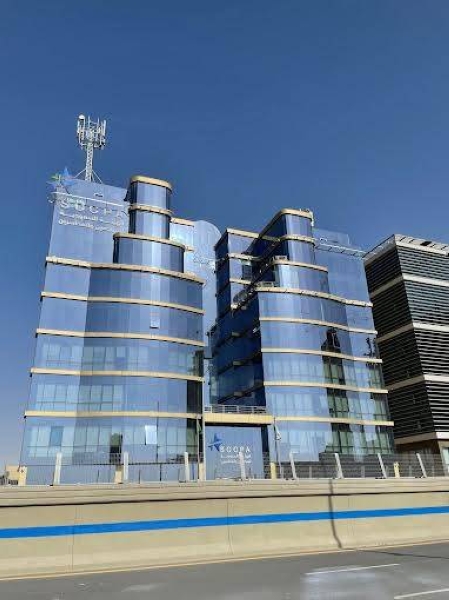
Najib Mikati has asked Finance Minister Youssef Khalil to stop paying the additional incentives allocated to some public administration employees
Retired military personnel have also resumed their protests, closing the doors to the Old Serail in Zahle, and blocking access to the Saida Serail
BEIRUT: A new wave of protests has swept Lebanon as employees have turned on the government — the Ministry of Finance in particular — for providing discretionary financial incentives to some public administration employees while leaving out thousands of others.
The Cabinet at its last meeting agreed to allocate a financial advance of 36 billion Lebanese pounds ($2.4 million) in the form of financial incentives to employees of the Ministry of Finance, the Central Inspection, the Court of Audit, the Grand Serail (Government Palace), and the Presidential Palace.
This move outraged employees at other government institutions.
Protests were expanded on Thursday and saw the participation of employees from other public administrations and institutions.
Protesters called on the Cabinet to issue “an immediate decision to suspend the advance decree in order to redistribute it fairly and equally.”
Institutions to stop working on Thursday included the National News Agency, the Ministry of Energy, the Ministry of Labor, the Ministry of Youth and Sports, the Ministry of Information, and the Ministry of Agriculture, along with others.
In the face of the protests, Caretaker Prime Minister Najib Mikati has asked Finance Minister Youssef Khalil to stop paying the additional incentives allocated to some public administration employees.
The matter is to be discussed during the government session on Friday, as an item outside the agenda.
Retired military personnel have also resumed their protests, closing the doors to the Old Serail in Zahle, and blocking access to the Saida Serail.
Retired soldiers in Tripoli protested in front of the central bank’s branch in the city and blocked access to the administrative complex.
A statement from protesters expressed their “rejection of the gross discrimination against the public sector’s military and civilian employees and retirees.”
They added that “they are committed to the strike to defend justice and equality, and to reject the Ministry of Finance’s policy of discrimination approved by the prime minister.”
Workers at North Lebanon Water Establishment demonstrated before the headquarters of the institution in Tripoli. They called for “prioritizing” their demands so they can “continue to offer potable water.”
They added: “Our salaries are no longer sufficient to ensure continuity of life.”
Lebanon has been suffering from an economic crisis since 2019, which has led to a collapse in the exchange rate from 1,500 Lebanese pounds per dollar to about 90,000 pounds at present.
The World Bank has said the monetary poverty rate in Lebanon during that time has gone from 28 percent to 55 percent, while international organizations say that the country’s citizens are facing multidimensional poverty which is affecting 82 percent of Lebanese families.
Retired army personnel say that the minimum wage of retired soldiers is $150 based on current exchange rates. It was around $1,200 per month before 2019.
Their demands include calculating a unified percentage of the actual value of the pre-2019 salaries for all of the public sector and canceling all of the increases, bonuses and funds that have been given to certain categories of public sector employees.
The supply of food is also in question after employees at the Ministry of Agriculture went on strike, along with consumer protection inspectors.
The Union of Butchers and Cattle Farmers fear that an open-ended strike will affect the regular entry of cattle ships before the holy month of Ramadan.
The Food Importers’ Syndicate has also expressed its concern regarding the interruption of the entry of goods through border crossings and ports, particularly those that require testing by the Ministry of Agriculture, and inspection.
It also fears a severe shortage of goods which would impact on the month of Ramadan.
Joseph Al-Kosseifi, the head of Lebanon’s Syndicate of Editors, said: “The National News Agency, Radio Lebanon and the Directorate of Studies and Publications are the backbone of the Ministry of Information.
“The employees have never shied away from their duties, even under the most difficult circumstances. Therefore, they should be treated fairly. It would have been better for the officials to deal with the deteriorating sector more inclusively and fairly so that the other employees do not feel this unjustified discrimination against them.”
Beshara Asmar, head of the General Labor Union, stressed support for employees, especially “when it comes to getting an acceptable raise that would be integrated into their basic salaries, helping them avoid the daily suffering and bear the costs of coming to work.”
He added: “It is necessary for the proposed and implemented increases to include all of the independent departments, public institutions, municipalities, unions of municipalities and public hospitals, or they will move to organize protests and strikes like the employees of the ministries and public administrations.
“It is important to treat all employees equally and fairly.”










